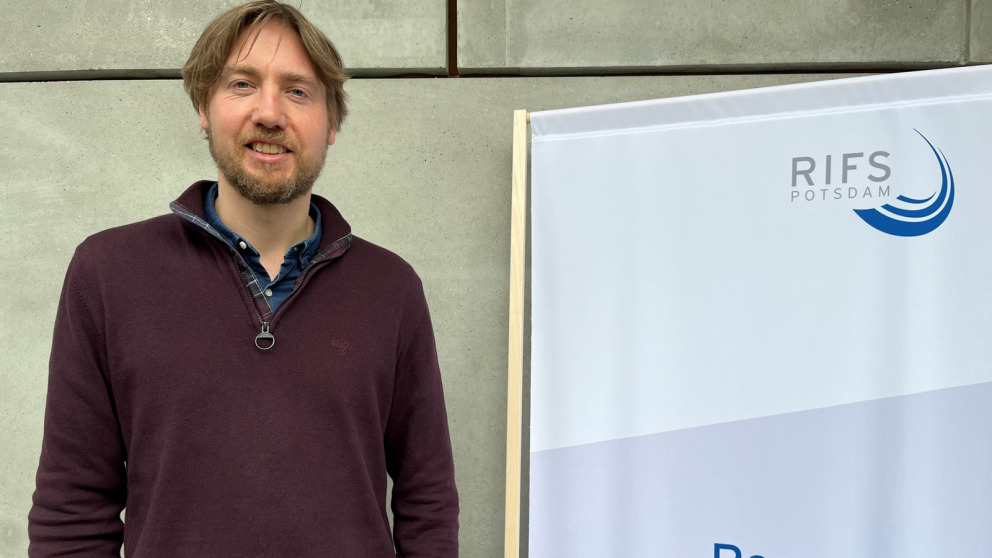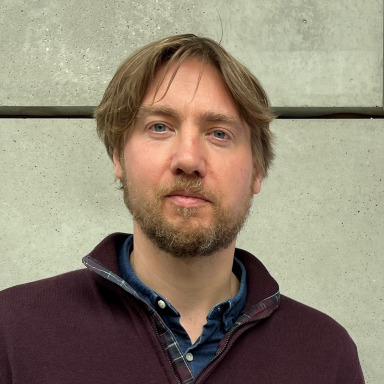How can transboundary emissions be regulated?
13.06.2023
Nino Jordan is a visiting fellow specializing in environmental policy and governance at the Research Institute for Sustainability (RIFS). During his Klaus Töpfer Fellowship at RIFS he will conduct research on "International Policy Learning for Rapid Evaluation, Adaptation, and Diffusion of Embodied Emission Standards." In this interview, he explains his approach and the importance of networking.

Mr Jordan, what are you working on currently?
Nino Jordan: Climate change is a global problem. But so far efforts to regulate greenhouse gas emissions have focussed almost exclusively on sources and countries of origin. This approach fails to take international trade flows properly into account. The lack of regulation of cross-border supply chains has a knock-on effect in that it discourages states from regulating industrial products at the national level that are exposed to international competition so as not to undermine their competitiveness. Basically, if domestic products were to become less competitive due to the introduction of carbon pricing or similar schemes, demand for emissions-intensive products from abroad would likely increase. In other words: you would see a geographic shift in the sources of emissions, while overall emission levels would likely remain constant. This is why it is so important that we also regulate transboundary greenhouse gas emissions. That is, those emissions generated along the various stages of production and transportation.
What can you tell us about the project that you plan to pursue during your fellowship?
N. J.: There are currently only a few policy approaches aimed at regulating so-called ‘embodied emissions’; in other words, greenhouse gas emissions released throughout the lifecycle of a product, including its production and transport. I would like to investigate these approaches in more detail and raise awareness of them during the term of my fellowship. I plan to hold a number of events where people who would like to implement similar policies can learn directly from others who are already involved in their implementation.
What does this have to do with our everyday lives?
N. J.: When people develop even a rough awareness of the environmental impacts generated across the product lifecycle – from production to transportation and utilization through to disposal – they stop seeing products as inanimate objects. Instead, we begin to see them in terms of their material and energy flows. This shift in perspective is both fascinating and overwhelming – but crucially, it reveals the connections between us all.
What role do networks play in your work?
N. J.: My research focuses on understanding how actors at different levels and in different regions can best learn from each other about new policy approaches – and how they can best coordinate their various efforts. Networks are so important because that is where a lot of the learning and coordination happens.
What research question would you like to be able to answer after your fellowship here at RIFS?
N. J.: What policy solutions are available for capping embodied emissions that other actors would be willing to adopt and adapt to their contexts? Clearly, we need solutions with high uptake potential that will create a positive, self-reinforcing dynamic and avoid backlashes. How can different actors in different regions at different levels coordinate their activities in order to achieve greater impacts than they would acting alone?

